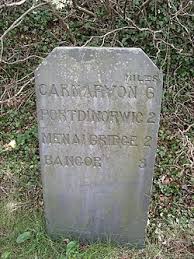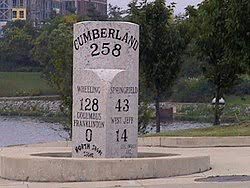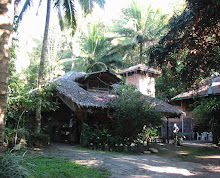ANDREW
CUNANAN: FILIPINO MEDUSA
I've been watching the above on Netflix for a few days after discovering it on YouTube (where you can see just the first 3 chapters), and from the first it blew me away. I already knew about the crime, had watched a docu. But the series is extremely compelling, mainly because the lead actor, also a Filipino American --Darren Criss-- (whose mom is a "firecracker from Cebu") is simply genius in the role of Andrew Cunanan. The Venezuelan actor who is the spitting image of Versace and also amazing in the role, and all the rest of the cast make the series extremely hypnotic.
And this morning I came across (thank God, because it gave me a measure of understanding) a video of
Krishnamurti in which he responded to a question regarding homosexuality, and
he gave a beautiful explanation and description of desire, gave me important
keys.
To state it briefly,
Krishnamurti speaks of desire, of how the senses perceive beauty, the brain
says, “I wish to have that”, and we reach for the object of desire. Whether it
be physical or mental. Indirectly he says, "Homosexuality exists. Accept it, and move on."
His teaching inspired this reflection.
Andrew Cunanan, son of a Filipino father and an Italian mother, born
and raised in the U.S., murdered several people before he stalked and shot to
death Versace as the famous designer walked back to his Miami Beach mansion in 1997.
A few days later, Cunanan killed himself.
Cunanan and Versace were
two faces of one coin: desire. Versace had the genius of calling forth
desire in women, especially: the desire
to be beautiful and to wield power as a mortal woman transformed into goddess. Cunanan was raised in desire by parents who
turned him into an idol and trained in him the addiction to material objects
and immediate self-gratification. He was
endowed with beauty, intelligence, charisma, and turned himself into a young
god, a magnet for the old men who already possessed the objects of Cunanan's desire: money, and luxury. And he also had powerful desires for acceptance,
friendship, romance, and used money and luxury, in addition to his personal
charisma, to reel in and hang onto friends, lovers, and to exercise power over those whom the system considers powerful, winners:
older, wealthy, successful, white men.
Both Versace and Cunanan were geniuses of
desire, in their own ways. The world brought them together and the chaos that was inside
Cunanan and all around Versace produced the chemical reactions that destroyed
them both.
Versace chose the Medusa as
the logo of his fashion empire. Cunanan
became the Medusa and destroyed those he caught in his web of desire, seduction,
illusion.
The Filipino
Angle
The series is successful
because it humanizes the characters of this Greek drama. And no one is more
humanized than the central characters: Versace and Cunanan. Both are born of Italian mothers. But while Versace is more “normal”, the son
of a talented, devoted, magically dreamy and creative mother, Cunanan's mother is a dreamy religious fanatic who encourages narcissism
and escapism in her son, and of a father who is a crass materialist, a social
climber, probably sociopathic in his single-minded pursuit of money
without compunctions about breaking the law to get it, then abandoning his
family to escape the consequences of his actions, preferring squalor and invisibility in the
Philippines. They single out their youngest son to become the vessel of their
obsessions, their beautiful Frankenstein offspring, and set him loose on the
world, a conquistador of the unconscious, the libidinous, the innocent. And in
Cunanan's killing spree, why is Versace his ultimate target? He is in love with Versace but knows he can
never have such a man, because such a man is oblivious to his game, has too much power
and real love by his side. Versace
is everything Cunanan knows he cannot and will never be. And so he must die.
Cunanan’s Filipinoness, early on, he realizes, is an inconvenience and must be replaced by the
glamorous Portuguese “da Silva”, after the encounter with the supreme cynic of
human trafficking, the madam of an escort service who forces him to define
himself taxonomically as an “Asian American”.
“My Latinos are hunks. No can do. I can’t sell a clever Filipino, even
one with a big d__.”
The Cunanan story is very important for Filipinos to study and reflect on. This is a real person who you could say lived
the American Dream, of the immigrant who has everything it takes to succeed and is groomed for social success, then sinks into the dregs and becomes an
avenging angelic demon.
He destroys everything he is, he goes on a rampage to live out the dreams that everyone else is willing to go through hell to achieve, without making the slightest effort except to seduce the hell out of the entire world. It’s the Hitlerian formula except focused on the Hollywood plot. Beside Cunanan, the Richard Gere character in American Gigolo looks like a hardworking, respectable, and serious professional. Cunanan literally turns into the Id in human form, the Id we all must learn to sublimate by the time we are 8 years old.
Nope, in Cunanan’s case it turns into a rampaging ephebus, a dazzling Adonis straight out of a Vogue ad (“You look like you’re dressed for church,” the escort madam blurts out at first sight of him). The greatest tragedy being that he became a deadly caricature of the spoiled brat who never grows up and reaches for nothing more than the most paltry of ambitions: appearances. He murdered for appearances. He killed those who refused to keep up the farce. Killing was easy, it erased reality, and he could continue to live in his pretend perfection.
He destroys everything he is, he goes on a rampage to live out the dreams that everyone else is willing to go through hell to achieve, without making the slightest effort except to seduce the hell out of the entire world. It’s the Hitlerian formula except focused on the Hollywood plot. Beside Cunanan, the Richard Gere character in American Gigolo looks like a hardworking, respectable, and serious professional. Cunanan literally turns into the Id in human form, the Id we all must learn to sublimate by the time we are 8 years old.
Nope, in Cunanan’s case it turns into a rampaging ephebus, a dazzling Adonis straight out of a Vogue ad (“You look like you’re dressed for church,” the escort madam blurts out at first sight of him). The greatest tragedy being that he became a deadly caricature of the spoiled brat who never grows up and reaches for nothing more than the most paltry of ambitions: appearances. He murdered for appearances. He killed those who refused to keep up the farce. Killing was easy, it erased reality, and he could continue to live in his pretend perfection.
But we can see that his
intelligence, though it is of the most parrot-like, book-learning ilk, cannot
block out the horror of his inner tragedy, which is that he has no home, no sane,
secure, and loving stability in his life. He has done nothing with his life. The ugliness in his world piles up around him and in his wake until he can no longer
continue his self-delusion.
He does enjoy his fame. He derives satisfaction from seeing his photos splashed out on newspapers and magazines after Versace's murder.
He does enjoy his fame. He derives satisfaction from seeing his photos splashed out on newspapers and magazines after Versace's murder.
Most of us learn to
tolerate, bear, submit, resign ourselves to the impossibility or the
destruction of the small worlds of perfection we have attempted or intended,
hoped to create with others. When we do
get a slap on the face from life, we don’t respond by grabbing a magnum of
champagne or a hammer and bashing someone’s face in.
We do it to ourselves, inside our bodies. Our violent emotions gnaw at our organs and
tissues for years, they turn into recurring nightmares, or we imbibe hard liquor, nibble at
chocolate to sweeten the bitterness and find distractions from our background
sorrow. We must self-repress, because we fear
the consequences of letting out the monster.
Cunanan had no such inhibitions. To me, his life is a master class in
the true unity between us and the world that we believe is disconnected from
ourselves. No. We are in truth, in reality, that world. Whatever we do to it, we do to
ourselves. And Cunanan’s will to
destroy inevitably had to destroy him.
As for Versace, he was a
kind, lovable, creative soul who had the Midas touch for summoning beauty. But there was ugliness in his life as well. Not so much visual ugliness, but those forces that cannot be seen and that the unwise and simple
become enmeshed in, even if in their essence they are not of the same warp or
woof. They still are captured in the
same loom.
Versace was a creator of
beauty and in the background we see in his mother the genius of Italy and the
struggles of its people with the injustices of an old society founded over
power and wealth for the few and misery for the many. His genius creates wealth and his sister is
the materialist, the strategist, the generalissima who wants to ensure that
their family will become securely ensconced in the elite, never to fall back
into poverty and invisibility again. The
artist and the business magnate. Master
creators of image. Such is the aristocracy of the Age of Appearances.
We all live in the Empire
of Appearances, and although it is in the midst of its swansong, the final
moments before its collapse, collective hypnosis is at its peak, even
though the cognitive dissonance is growing, growing, and already approaches the
threshold at which it can no longer be suppressed.
I cannot deny that
Versace in his secure Italian identity is the perfect foil for Cunanan’s
unmoored, fissured, chimerical, unresolved sense of self.
Andrew’s story, his dissociated
personality, to me denounces the hidden and silent tragedy of post-Rizal
Filipinos. Our moral bankruptcy, our crisis of identity after two
colonizations, and the impact of decadent capitalism, or even better, crass,
desouled materialism, the “American Dream”, on our psyche.
It has literally put me in
the middle of a maelstrom. I needed to examine it and find a way out.
I have lived the same
conflicts, the same non-definition, the same seeking after false identity,
borrowed self, and absence of moral foundation except for rote Christianity for the
innocent and ignorant.
In my own
intimate search for who I am, I have had to break several molds I had created myself, but that could not withstand the test of time, of spiritual crises that impelled me toward
rediscovery, redefinition, re-cognition of what, who I am, what I need, how to
feed it to myself with what the world feeds me.
So people
like us, like Filipinos, are a kind of laboratory for a future human. We have
not received a well-configured, secure, unquestionable, unchallengeable
identity like the Italians, Norwegians, the Chinese, the
Indians. We have no option other than
self-creation, and the path bifurcates into two great roads: Truth or Appearances.
If I choose
truth, no one wants a smart Filipino escort, not even a smart Filipina
wife. I am not American, but I think
like one and sound like one. I am not a
Latina but I have lived longer in Latin America than in my birth
country, which is geographically in Asia.
I am not white, I am brown. And
my identity, which was waiting for me in this Hispanic land, is more of the 19th
century than of the 20th, and the truth is, I would rather jettison
all of these things, and live in the 50th century, when the human race
on Earth will be one race, among uncounted other races in the uncounted
galaxies.
Above all, to
be spirit, not determined by this external suit of physical matter. Not be straitjacketed inside it.
For what is
it to be Filipino? And why did I choose
to be Filipino in this reincarnation?
Right now, the answer I can give is what I feel Cunanan’s story offers
us as a riddle, a Biblical parable, a hermetic secret: to be whole and strong enough, so that, like
Rizal, we may embody and be witness to ourselves and before the world, like those
humble, solid and squat roadside markers of old that told the traveler exactly
where she was and how much farther she had to go.



And as for the map, Rizal also showed us with his life, with his sacrifice, that the map is one, no matter where we are born, no matter what we look like, or what script we are handed at birth. The map is Truth.
All the rest, are Appearances.
And as for the map, Rizal also showed us with his life, with his sacrifice, that the map is one, no matter where we are born, no matter what we look like, or what script we are handed at birth. The map is Truth.
All the rest, are Appearances.

No comments:
Post a Comment